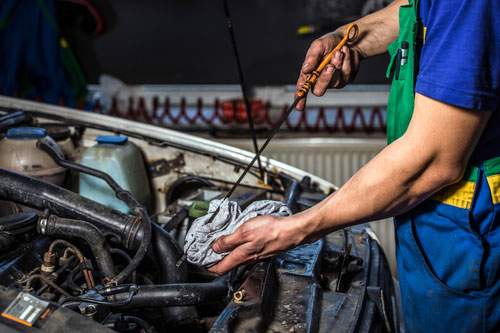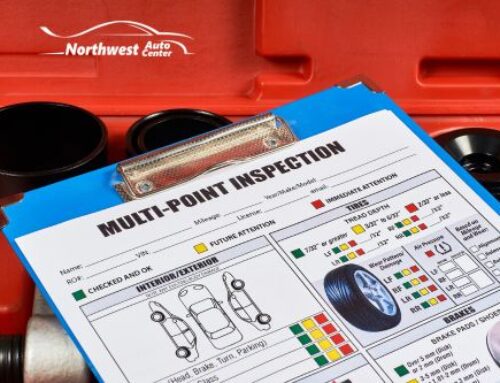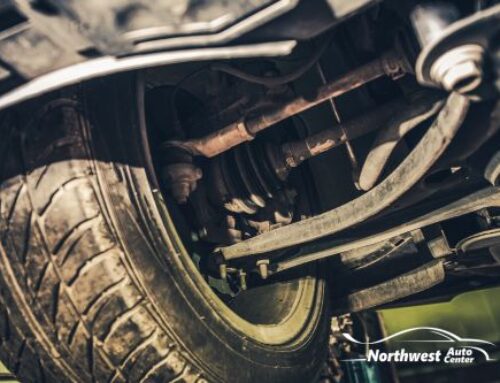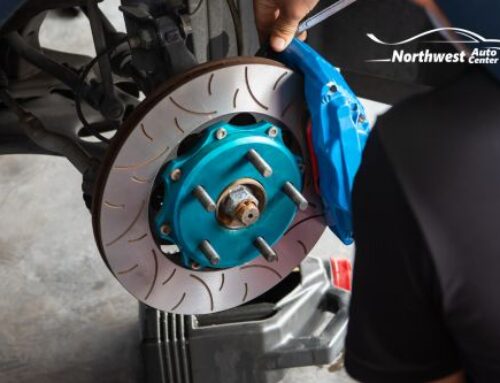We’ve heard it from our parents since the day we first started driving: “Make sure to always schedule an oil change.”
Which is good, because changing your fluids saves your car. But, that’s not just limited to oil changes. Transmissions fluids, brake fluids and other should also be included on that list. Why? Well, we repeat: changing your fluids saves your car.

The Essential Fluids
While every part of your engine works together to keep you moving, these fluids are the lifeline – the blood – of your engine. Which is why changing your fluids and keeping them in shape is critical. But, which fluids are we talking about? While windshield wiper fluid sure makes seeing much easier, it’s not critical.
Engine Oil
Engine Oil is the classic; it’s what you are replacing when you go in for those regular (we hope) oil changes. What is its job? Protecting your engine’s components from corrosions while also keeping your engine cool. The later which is relatively important for drivers in the Lone Star State.
Transmission Fluid
Perhaps the most critical element in automatic cars, the transmission fluid serves as a lubricant and a hydraulic fluid. Thus, it lubricates moving parts, cools your transmission and helps with gear shifts. In automatic transmissions, it also helps transmit power from the engine to the transmission.
Luckily, the need to flush the system isn’t as frequent as with engine oil. Most manufacturers suggest flushing the transmission fluid around 100,000 — but, that depends on your driving and what you ask of your vehicle.
Coolant
Maintaining the radiator temperature and preventing freezing or overheating is the coolant’s job. While it works hard, coolant doesn’t necessarily break down or deteriorate like some of the other oils in your vehicle. The reason behind flushing your coolant is restoring the proper mix between coolant and water.
Power Steering Fluid
If you like steering, keep your power steering fluid clean and full as it’s responsible for pressurizing the power steering pump.
What Happens if You Don’t Change Your Oil?
Well, nothing good.
With so many tiny, crucial metal parts moving together in a close space, oils help lubricate and protect the elements of your engine as they interact with one another.
As oils work cleaning your engine, they pick up corrosive material and contaminants that eventually lead to their breakdown. In fact, after this man sent in a sample of oil that wasn’t changed for 12,000 miles, they found high levels of metals including iron (more than 15 times the average amount), aluminum, chromium and more.
And those metals are just isolated to the oil, dirty oil isn’t good at cleaning. Instead, it leaves behind metal particulates throughout your engine. This causes the premature wear and damage of engine components, as well as a major dent to your bank account should something fail.
What’s More Important: Time or Mileage?
After leaving the shop, most drivers leave with a sticker with a mileage number and date indicating the next oil change.
But, which one matters more?
While it’s tempting to wait for the date if you have not often been driving, that low mileage could be a reason to go in sooner.
Remember, oils clean your engine, removing particulates caused by wear and combustion. Even in infrequently used cars, chances are some of these particulates are remaining in your oil. Additionally, like most things in life, oils break down in time.
Also, severe conditions could mean earlier services. If you drive in cold weather, up mountain passes, tow trailers, drive dusty roads or have a habit of idling for long periods of time your engines oils are pulling double duty. In fact, you could even see your engine light come on before you hit your mileage or the date.
Changing your oil is one of the most critical vehicle maintenance items. While you may think you can make just a bit longer, you could find yourself with costly repairs and replacements not far down the road. It’s simple, changing your fluids saves your car.
In need of an oil change? Not sure how your transmission fluid is doing? Schedule a service at Northwest Auto Center of Houston today!






Leave A Comment
You must be logged in to post a comment.